At the 17th ICAO Traveler Identification Programme (TRIP) Symposium that took place from 13-15 September 2022 in Montréal, the UN specialized aviation agency demonstrated its commitment to further enhance global aviation’s post-pandemic recovery, promote the issuance of secure travel documents, and support the implementation of trust frameworks for credential verification.
Our latest analysis reveals a positive outlook for the aviation sector’s recovery. Air transport seat capacity and passenger totals globally have reached an estimated 80 per cent of pre-pandemic levels, and the number of air passengers carried from January to August of this year increased by an estimated 55 per cent compared to the same period in 2021.
This surge in global passenger volumes requires the air industry, border control authorities, and agencies responsible for issuing travel documents to explore more efficient and secure ways to identify and process travellers.
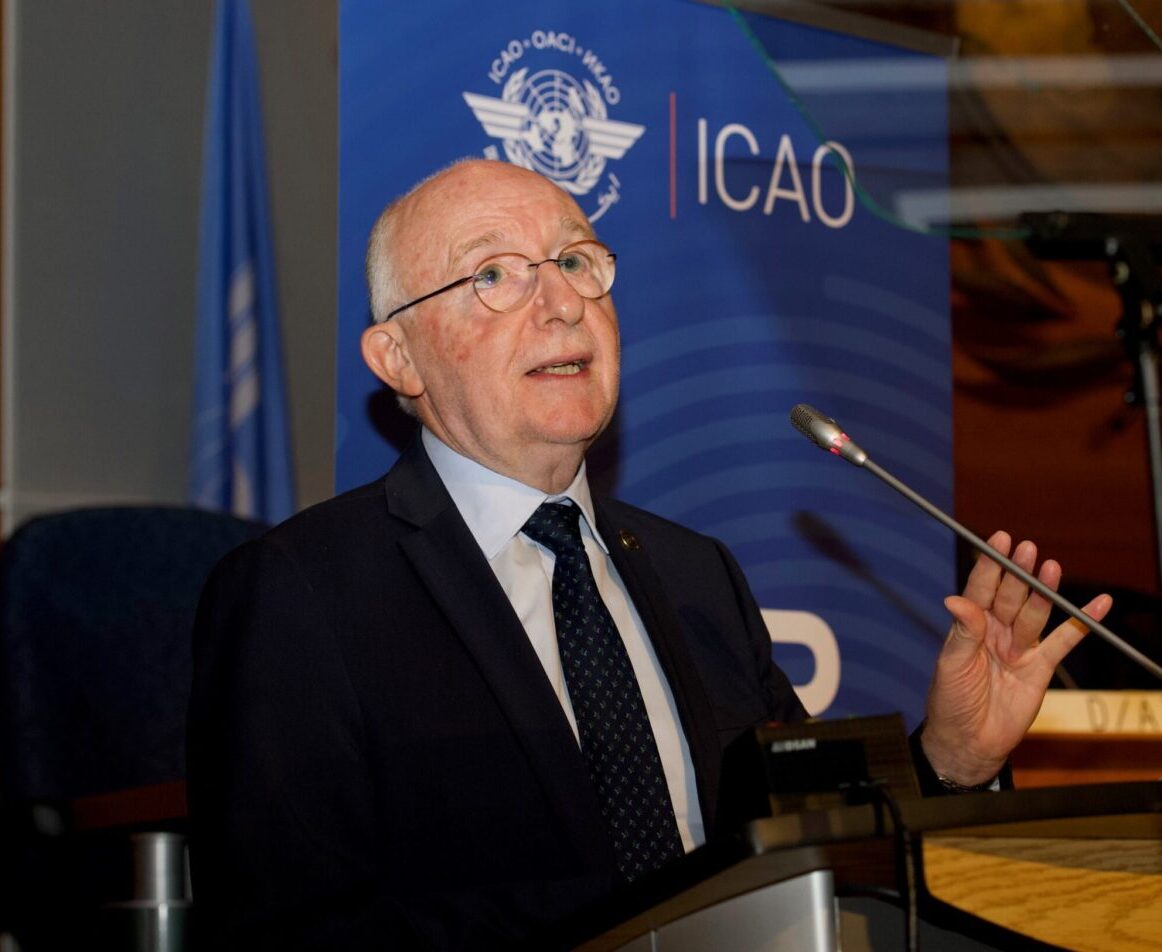
The ICAO TRIP Strategy, adopted by Member States at the 38th ICAO Assembly in 2013, establishes the goals and objectives of traveller identification management, leads and reinforces a global approach, and provides direction for action by ICAO, States and other partners in identification management. Its effective implementation ensures States’ ability to realise the socio-economic benefits of international travel and ultimately attain the United Nations Sustainable Development Goals (SDGs).
The TRIP strategy remains a critical tool in ensuring aviation security, particularly in terms of responding to border threats posed by persons of interest. ICAO’s partnership with other UN agencies in this shared responsibility is within the framework of the UN Countering Terrorist Travel (CT Travel) Programme and in compliance with UN Security Council (SC) Resolutions 2178, 2309, 2396 and 2482 which were adopted in 2014, 2016, and 2019 respectively.
ICAO Council President, Mr. Salvatore Sciacchitano, delivered the opening address to the 480 Government and industry participants in attendance, acknowledging that the theme for the Symposium, “Seamless and Contactless: Sharing data to accelerate the recovery,” could not be more appropriate.
“Aviation’s many responses to COVID-19 have left a lasting imprint on passenger facilitation procedures and policies, including those relating to border checkpoint processing,” President Sciacchitano said. “Efforts must be reinforced by governments to ensure Evidence of Identity and Document Issuance and Control, two critical elements of the ICAO TRIP Strategy.”
Recognizing Amendment 29 to Annex 9 – Facilitation to the Chicago Convention which recently incorporated new and amended health-focused priorities, including the establishment of a new Chapter 10 specifically relating to Health Related Provisions, President Sciacchitano stressed the crucial importance of States’ compliance with ICAO Doc 9303, which contains current Machine Readable Travel Document (MRTD) specifications.
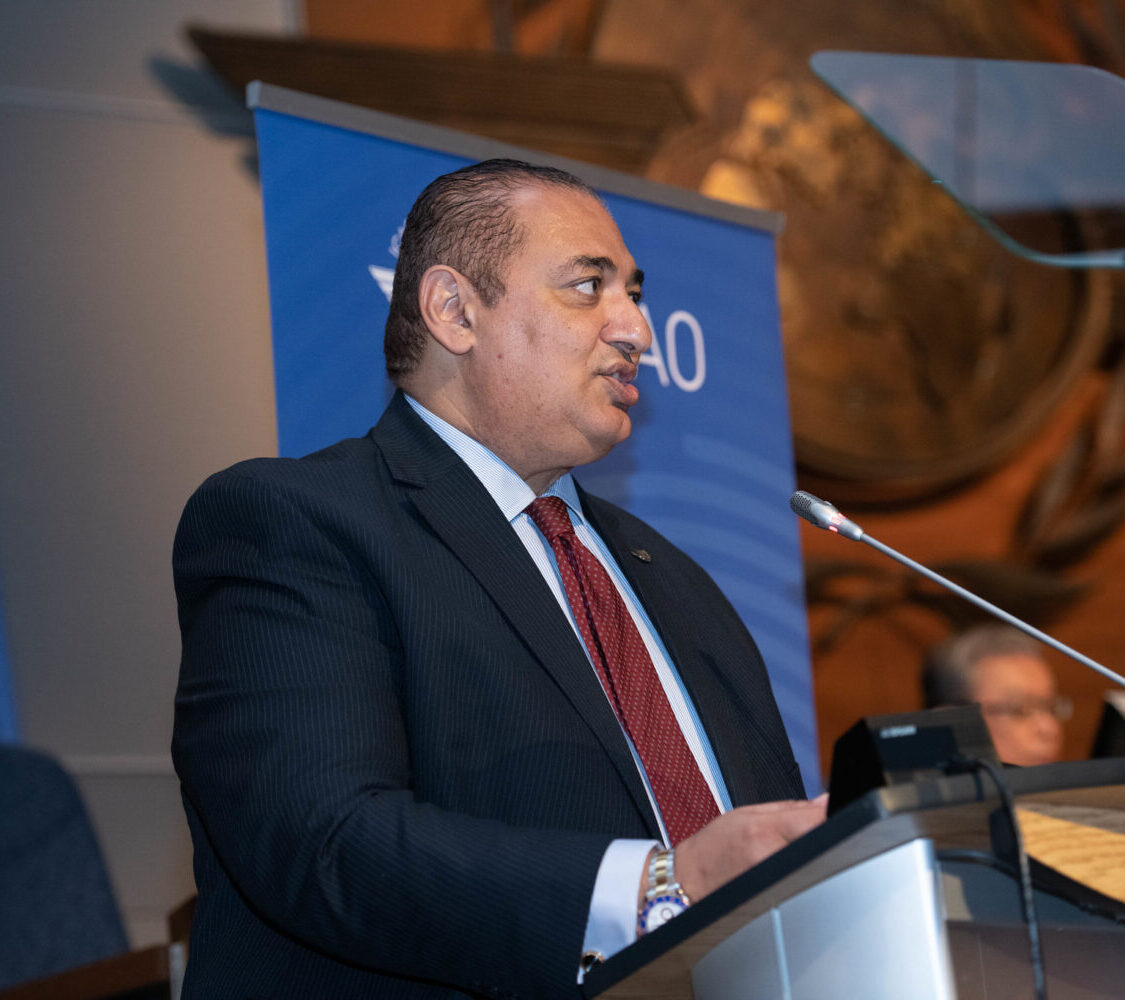
Delivering remarks at the Symposium, Director of ICAO’s Air Transport Bureau, Mr. Mohamed Rahma, noted that it was the first post-pandemic in-person TRIP event and underscored the critical importance of the global air transport network to trade, business, tourism, and the international supply chain. He recounted the role of the ICAO Council’s Aviation Recovery Task Force (CART) in providing practical, aligned guidance to governments and industry operators to ensure the sector’s restart and recovery from the COVID-19 crisis in a globally coordinated manner. The CART initiative, he continued, serves to improve the effectiveness of prevention and management of public health risks in aviation and to build resilience for similar events in the future.
A number of senior officials from ICAO, industry players, and other organizations participated in nine sessions and delivered presentations during the Symposium, providing perspectives on ways to improve traveller identification and accelerate the global air transport sector’s recovery.
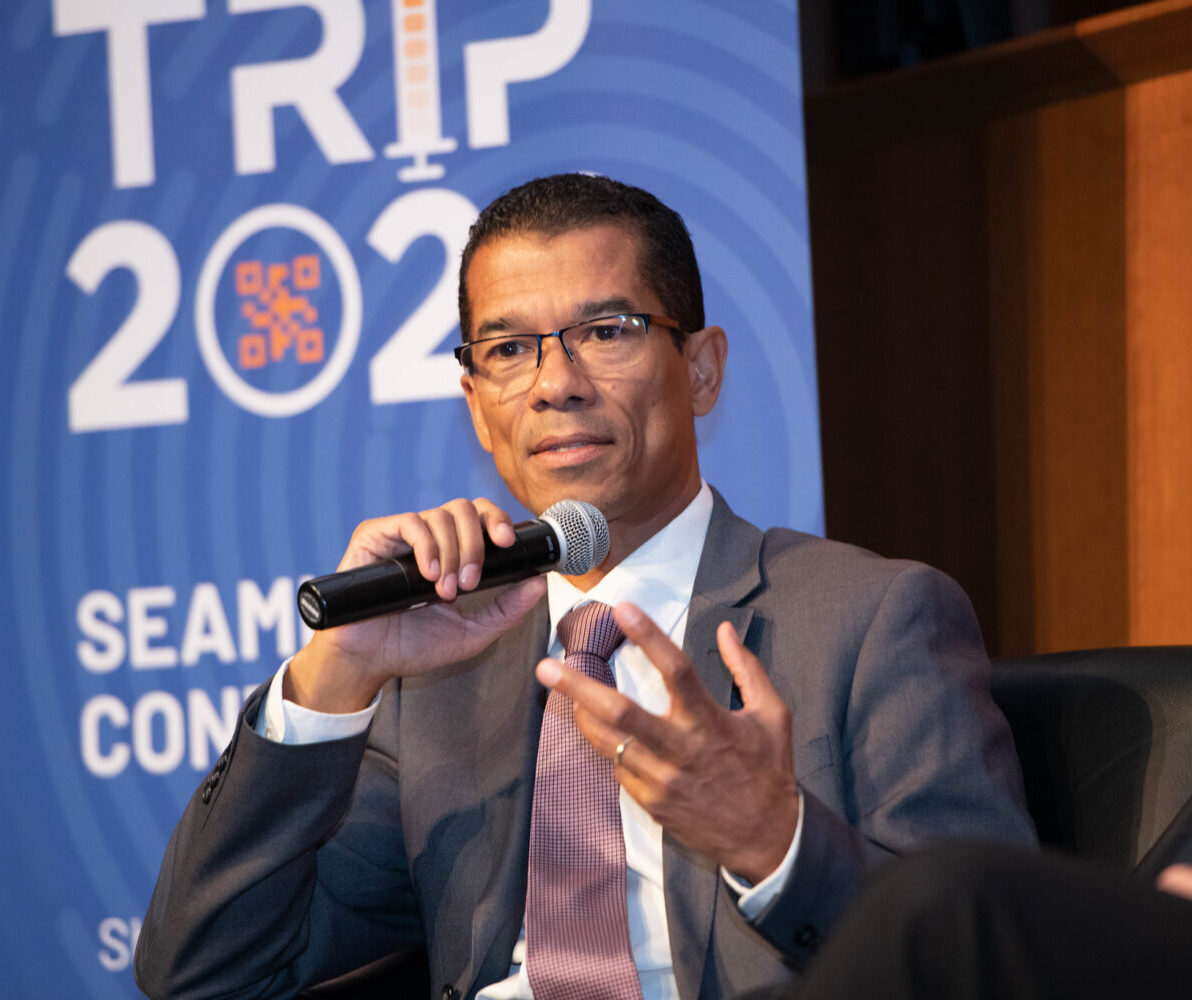
Moderated by ICAO’s Deputy Director for Aviation Security and Facilitation, Mr. Sylvain Lefoyer, the Symposium’s very first panel focused on Recovery in Aviation: Regional and International Perspectives.
The session updated participants on the initiatives and projects of international organizations closely involved with measures to enhance identification management in the post COVID-19 recovery phase. Session discussants also offered valuable insights on current and emerging issues aimed at effectively improving the seamless and contactless use of travel documents.
Recent developments in the ICAO TRIP Strategy, including the rapid pace of innovation which is now producing new possibilities through which traveller identification can be managed, shaped submissions in the second session. One of these initiatives is the ICAO Digital Travel Credential or DTC, which will complement, and perhaps eventually substitute, a conventional passport with a digital credential, allowing for enhanced contactless processing of a traveler’s identity. The ICAO Visible Digital Seal, also known as VDS, a very important enabling technology that allows States to issue secure, standardized and verifiable 2D barcodes in either paper or digital format, was also highlighted in the session. The VDS has multiple uses and can be applied to health proofs such as vaccination, test or recovery certificates, as well as a Digital Travel Authorization.
In the third session, which addressed ways of Supporting Improved National Identity Management Practices in States, the importance of assuring credible evidence of identity, involving the tracing, linkage and verification of identity against breeder documents, was underscored. The panel noted that the value of a travel document is measured by the trust and confidence placed in it by inspection agencies, and that it is essential to ensuring robust traveller identification for security and border control purposes.
Session four focused on ICAO MRTD Standards and Specifications: Travel Document Integrity while the fifth panel addressed Health at the Border. Latest developments regarding the ICAO MRTD specifications contained in ICAO Doc 9303 were shared, as were the multiple benefits that electronic passports provide to travellers, issuing authorities, the global border management community, and aircraft operators.
On Health at the Border, the panel focused on achieving global interoperability among health proofs to support international travel and aviation recovery, recognizing, in particular, the benefits of the ICAO Visible Digital Seal (VDS) specification for quick and contactless verification based on existing infrastructure, as well as its advantages for identity binding. Other experiences from around the world were shared, describing how states have supported the issuance of health proofs, for both domestic and international purposes.
The sixth session highlighted Inspection Systems and Tools & Interoperable Applications, affirming the need for States which issue electronic MRTDs to join the ICAO Public Key Directory (PKD). The use of the ICAO Health Master List (HML), a recent development related to the PKD, to check health certificates, also featured in discussions.
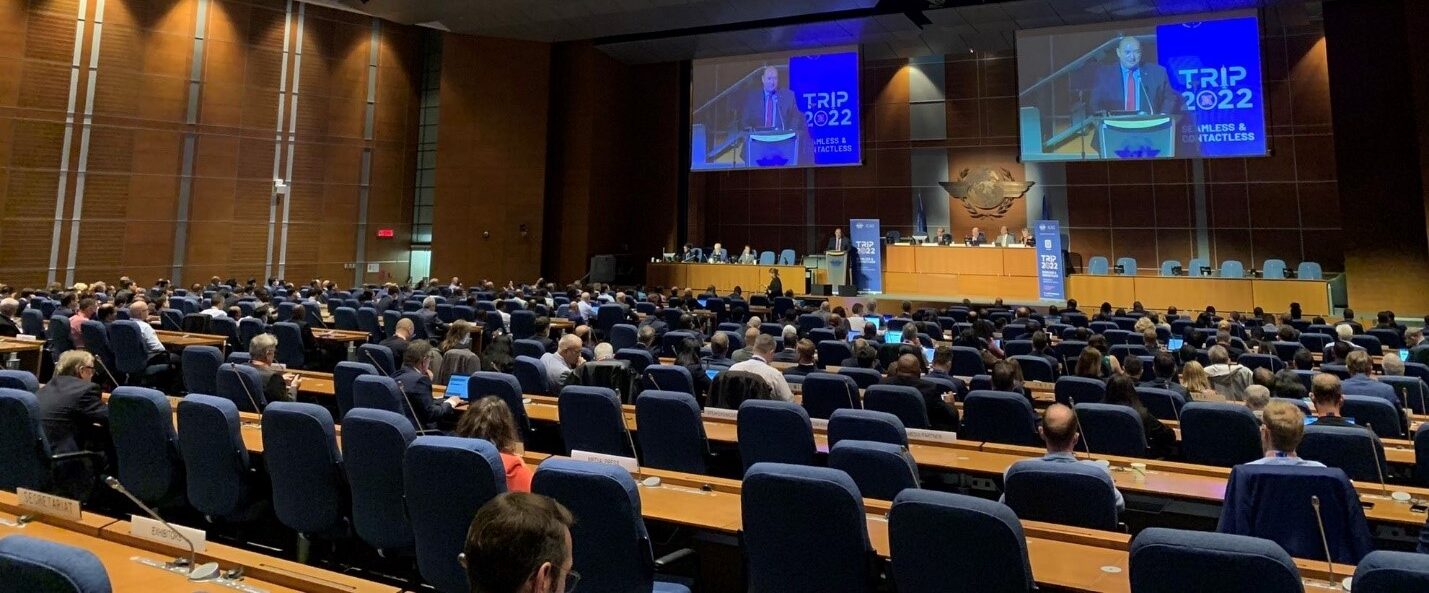
Passenger data programmes such as the Advance Passenger Information (API) and Passenger Name Record (PNR) data were highlighted in the seventh panel, with experts from different world regions sharing their experience and good practices. The session also focused on systems providing electronic authority to travel, as well as those which enhance the use of interactive Advance Passenger Information (iAPI) to support pre-travel verification systems.
Another very important theme of the Symposium was ICAO capacity building and assistance to States. Discussions on this highlighted key initiatives undertaken by the ICAO Secretariat and the Technical Advisory Group on TRIP (TAG/TRIP) to support Member States’ implementation of Annex 9 provisions, ICAO Doc 9303, and the ICAO TRIP Strategy.
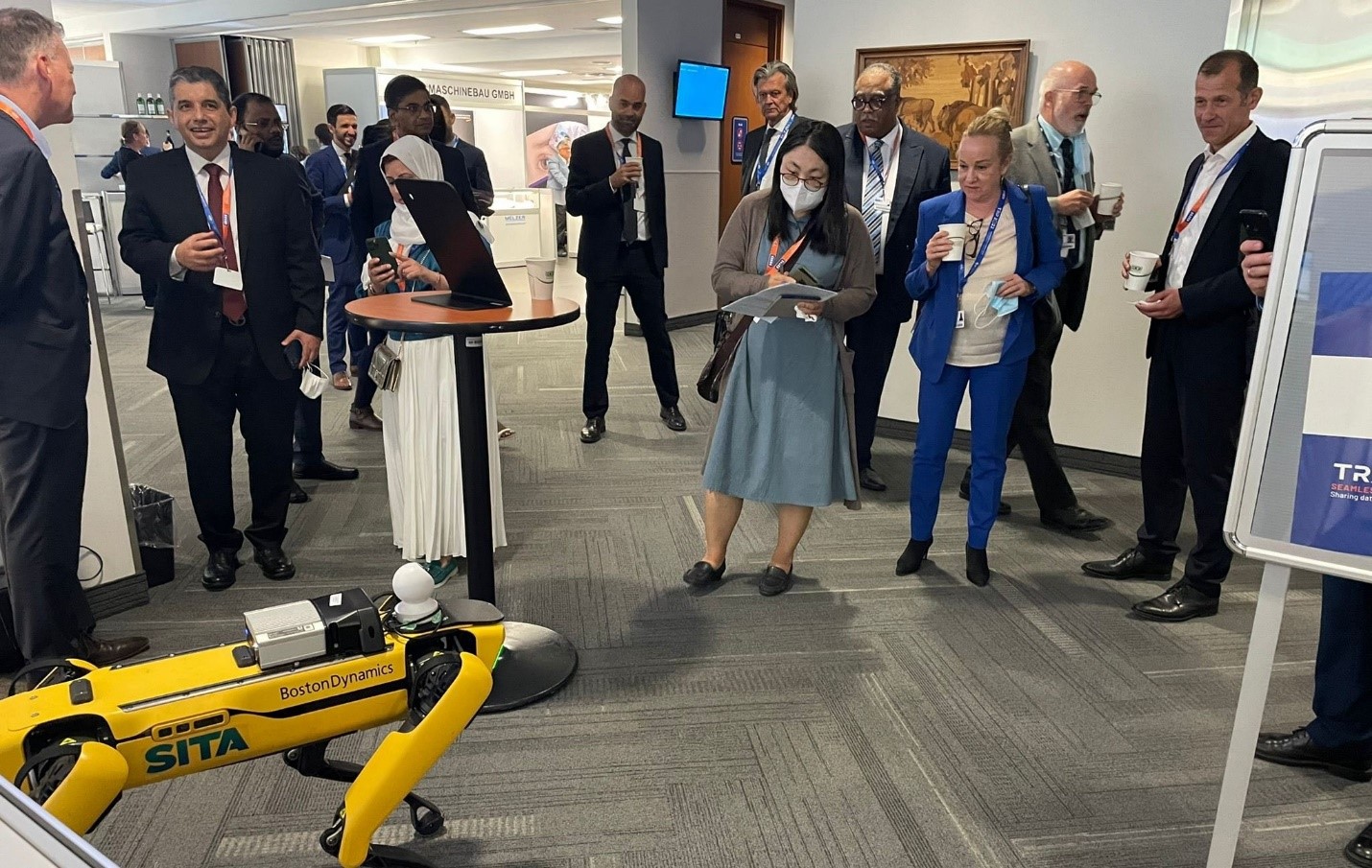
Symposium participants asked questions during the panels and interacted with partners and experts in an industry exhibition that was held in parallel to the Symposium. The exhibition highlighted some of the newest products and services regarding the use of artificial intelligence solutions for border inspection systems, biometric and digital identity, digitization of travel experience, and related travel document security applications.
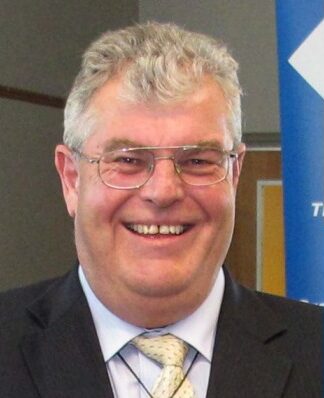
There was an emotional moment at the event when Maria Robertson, Deputy Chief Executive, Department of Internal Affairs, New Zealand, paid a deserving tribute to Mr. David Philp, who died in December 2021. A well-known leader in the TRIP community, Mr. Philp represented New Zealand for years on both the ICAO Facilitation Panel and the TAG/TRIP, the ICAO PKD Board, and the Implementation and Capacity-Building Working Group (ICBWG) which he chaired until his death.
“Today ICAO is pleased to honour Mr. Philp’s many qualities and achievements by posthumously awarding him the TRIP Award of Excellence,” President Sciacchitano declared to Symposium participants, drawing applause. “His contributions to ICAO’s work were deeply valued by technical experts around the world, and he very genuinely personified the spirit of “No Country Left Behind.”
The TRIP Award of Excellence is bestowed in recognition of the outstanding contribution of individuals to the development, promotion and implementation of TRIP as a pillar of enhanced civil aviation security and facilitation worldwide.
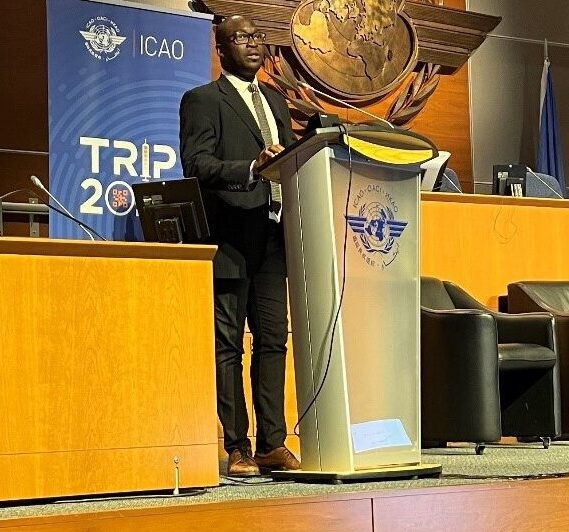
In concluding his closing remarks at the Symposium, Ambassador Ahmed Djibril Coulibaly, Chairperson of the ICAO Council’s Air Transport Committee and Permanent Representative of Côte d’Ivoire to the Council, commended the TAG/TRIP, Member States, and industry partners for their continued support of ICAO’s work. “It remains for me to offer my sincere thanks to everyone involved in making this symposium a success,” he noted, adding “we look forward to welcoming you back to Montréal for the 18th TRIP Symposium in 2023.”
Participants at this year’s TRIP came from 70 States, with representatives of 10 international organizations and 42 industry partners in attendance. These included the World Health Organization (WHO), the International Organization for Standardization (ISO), the International Criminal Police Organization (INTERPOL), the United Nations High Commissioner for Refugees (UNHCR), and the United Nations Centre for Counter Terrorism (UNCCT).
Others came from the International Organization for Migration (IOM), Airports Council International (ACI), the World Travel and Tourism Council (WTTC), the Organisation for Economic Co‑operation and Development (OECD), and the International Air Transport Association (IATA).
Throughout the TRIP symposium, various sessions highlighted our need for enhancing international cooperation and collaboration to facilitate the traveller’s journey while addressing the multiple threats faced by international civil aviation. If you were not able to attend this event in person, the recordings from the 2022 TRIP Symposium are available for on-demand viewing here on ICAO TV.

